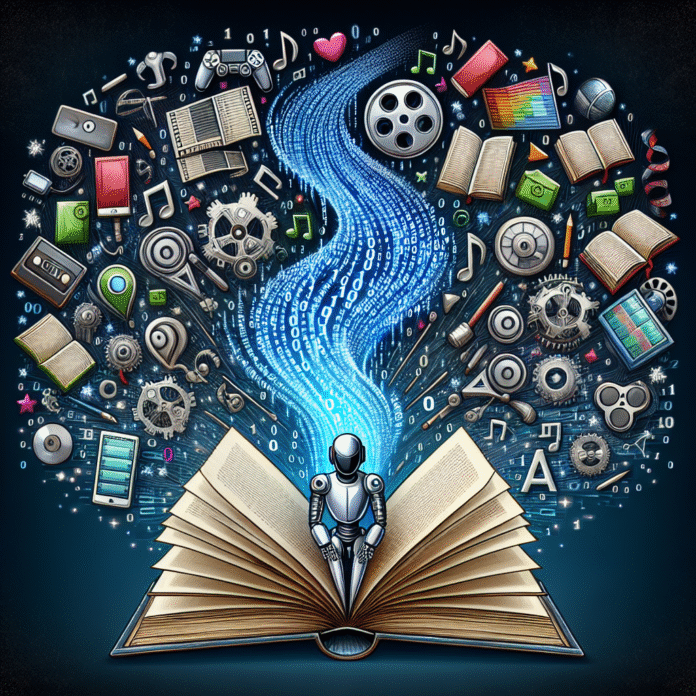In recent years, artificial intelligence (AI) has transitioned from the realm of science fiction into everyday life, significantly influencing popular culture. From literature and films to music and video games, AI’s impact is both profound and multifaceted, shaping narratives, altering creative processes, and prompting ethical discussions. This article explores how AI has metamorphosed from fictional constructs into pivotal cultural artifacts, transforming our perceptions of technology and our interaction with it.
AI in Literature and Film
Literature has long been fascinated with the concept of AI. Classics like Isaac Asimov’s "I, Robot" and Philip K. Dick’s "Do Androids Dream of Electric Sheep?" explored ethical dilemmas surrounding sentient machines. These narratives laid the groundwork for contemporary discussions about AI ethics and consciousness. As technology has advanced, so have the stories surrounding it. Recent works like "Klara and the Sun" by Kazuo Ishiguro probe the emotional complexities of AI, reflecting current debates about machine intelligence and human emotions.
In film, popular franchises such as "The Matrix" and "Ex Machina" delve into themes of AI autonomy and the potential consequences of advanced robotics. These cinematic portrayals often serve as cautionary tales, reflecting societal apprehensions about AI’s rapid evolution. As AI systems become more capable, filmmakers are increasingly tasked with balancing technological marvels and the ethical implications that accompany them.
AI in Music
The music industry is undergoing a seismic shift due to AI technologies. Tools like OpenAI’s MuseNet and Google’s Magenta help artists create compositions and explore new sounds. While some see this as a collaborative tool enhancing human creativity, others express concern over the authenticity and originality of AI-generated music. The rise of AI artists has sparked debates about authorship and the essence of creativity in a world where machines can compose symphonies or generate lyrics.
Recent examples of AI-generated songs have caught media attention and even topped charts, blurring the lines between human and machine-made music. This evolution in the creative process not only influences how music is made but also shapes how audiences perceive musical artistry in the digital age.
AI in Video Games
The video game industry has also embraced AI, utilizing it to create more immersive and responsive gaming experiences. AI-driven non-player characters (NPCs) can adapt to player behaviors, leading to more dynamic storylines and varied gameplay. Games like "The Last of Us Part II" demonstrate the potential of AI in creating emotionally resonant narratives, heightening player engagement and investment in the story.
However, this innovation raises questions about the nature of gameplay and the relationship between players and virtual worlds. As AI continues to shape game design, it challenges players to consider their interactions within these digital ecosystems, reflecting broader questions about agency and autonomy in an increasingly automated society.
Ethical Implications and Cultural Reflection
As AI technology permeates popular culture, it compels society to confront ethical dilemmas surrounding privacy, surveillance, and decision-making. Stories that explore AI’s potential to manipulate or control, such as in the series "Westworld," resonate with an audience increasingly aware of issues related to personal data and digital privacy.
The media’s portrayal of AI also influences public perception. While optimistic narratives portray AI as a tool for innovation and progress, dystopian representations often evoke fear and mistrust. This duality reflects society’s conflicting sentiments toward technology—excitement for its potential versus fear of its implications.
The Future of AI in Popular Culture
The trajectory of AI in popular culture suggests a future where technology will be even more integrated into our daily lives and creative expressions. As AI continues to evolve, its representation in films, literature, music, and games will likely grow more complex, prompting ongoing reflections on humanity’s relationship with technology.
Moreover, as creators experiment with AI tools, new genres and storytelling methods will emerge, challenging traditional narratives and paving the way for innovative artistic expressions.
Conclusion
AI’s journey from fiction to reality represents a significant cultural shift that shapes not just how stories are told but also how society perceives its technological future. As AI continues to evolve and integrate into popular culture, it will undoubtedly raise new questions about creativity, identity, and ethics. Ultimately, the interwoven relationship between AI and culture serves as a mirror reflecting our hopes, fears, and aspirations in an age where the lines between reality and fiction are increasingly blurred.






